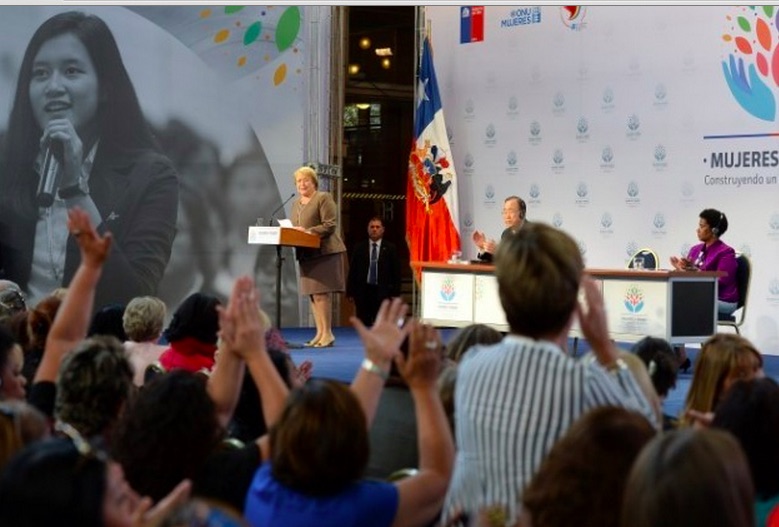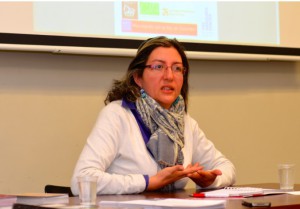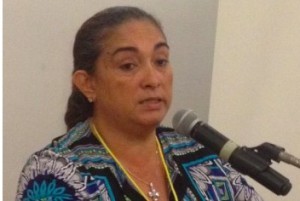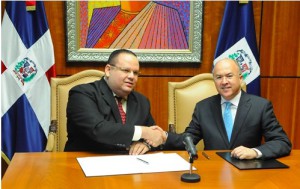DISARMAMENT & SECURITY .
an article by International Campaign to Ban Nuclear Weapons
Latin American and Caribbean states have once again shown a united front and a clear vision for the future of nuclear disarmament.
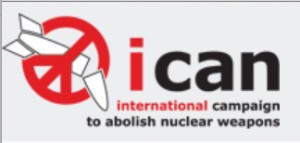
At the third annual summit of the Community of Latin American and Caribbean States (CELAC), heads of state of all 33 countries, issued a declaration fully supporting the outcomes of the Third International Conference on the Humanitarian Impact of Nuclear Weapons in Vienna last December and formally endorsing the Austrian Pledge. The Austrian Pledge, delivered by the deputy foreign minister of Austria at the end of the Vienna Conference, recognised the existence of a “legal gap” in the international framework regulating nuclear weapons and called on all states to join in efforts to fill this legal gap by pursuing measures which would stigmatise, prohibit and lead to the elimination of nuclear weapons.
CELAC is the first regional group of states to recognise that a treaty banning nuclear weapons is the best option to fill this gap:
“As has been demonstrated by the testimonies of survivors and evidence and scientific data, nuclear weapons constitute a serious threat to security, development of peoples and civilization in general. Being consistent with our declarations, in this purpose we reiterate our strong support to call made in Vienna and Nayarit to initiate a diplomatic negotiation process of an internationally legally binding instrument for the prohibition nuclear weapons.”
Carlos Umaña of IPPNW Costa Rica, an ICAN partner organisation, notes that, “With the CELAC Declaration, Latin American and Caribbean states have recognised they intend to remain at the forefront of efforts which bring us closer to a world without nuclear weapons. The Treaty of Tlatelolco, which established a nuclear weapons free zone across the region, was the first multilateral treaty to prohibit nuclear weapons in a region — now Latin American and Caribbean states intend to work to promote a similar process that bans nuclear weapons internationally.”
For decades, discussions on nuclear weapons have been dominated by the few nuclear-armed states – states that continue to stockpile and maintain over 16,000 warheads. The humanitarian initiative on nuclear weapons has prompted a fundamental change in this conversation, with non-nuclear armed states leading the way in a discussion on the actual effects of the weapons.
According to Daniel Högsta of ICAN, “the Austrian Pledge is a rallying call for states to demand action to fill an unacceptable legal gap. The momentum generated by the humanitarian initiative is paving the way for the commencement of a process to ban nuclear weapons. CELAC states have added their voices to the call. We expect other regions to do the same.”
Can we abolish all nuclear weapons?
30 August 2012 — The following opinion piece by Secretary-General BAN Ki-moon appeared in leading newspapers in Argentina, Bangladesh, Burundi, China, Germany, India, Iran, Italy, Japan, Lebanon, Malaysia, The Philippines, Republic of Korea, Russia, Serbia, Turkey, Ukraine and European weekly publications and has been translated into 10 languages.
‘THE WORLD IS OVER-ARMED AND PEACE IS UNDER-FUNDED’
Last month, competing interests prevented agreement on a much-needed treaty that would have reduced the appalling human cost of the poorly regulated international arms trade. Meanwhile, nuclear disarmament efforts remain stalled, despite strong and growing global popular sentiment in support of this cause.
The failure of these negotiations and this month’s anniversaries of the atomic bombings at Hiroshima and Nagasaki provide a good opportunity to explore what has gone wrong, why disarmament and arms control have proven so difficult to achieve, and how the world community can get back on track towards these vitally important goals.
Many defence establishments now recognize that security means far more than protecting borders. Grave security concerns can arise as a result of demographic trends, chronic poverty, economic inequality, environmental degradation, pandemic diseases, organized crime, repressive governance and other developments no state can control alone. Arms can’t address such concerns.
Yet there has been a troubling lag between recognizing these new security challenges, and launching new policies to address them. National budget priorities still tend to reflect the old paradigms. Massive military spending and new investments in modernizing nuclear weapons have left the world over-armed — and peace under-funded.
Last year, global military spending reportedly exceeded $1.7 trillion – more than $4.6 billion a day, which alone is almost twice the UN’s budget for an entire year. This largesse includes billions more for modernizing nuclear arsenals decades into the future.
This level of military spending is hard to explain in a post-Cold War world and amidst a global financial crisis. Economists would call this an “opportunity cost”. I call it human opportunities lost. Nuclear weapons budgets are especially ripe for deep cuts.
Such weapons are useless against today’s threats to international peace and security. Their very existence is de-stabilizing: the more they are touted as indispensable, the greater is the incentive for their proliferation. Additional risks arise from accidents and the health and environmental effects of maintaining and developing such weapons.
The time has come to re-affirm commitments to nuclear disarmament, and to ensure that this common end is reflected in national budgets, plans and institutions.
Four years ago, I outlined a five-point disarmament proposal highlighting the need for a nuclear weapon convention or a framework of instruments to achieve this goal.
Yet the disarmament stalemate continues. The solution clearly lies in greater efforts by States to harmonize their actions to achieve common ends. Here are some specific actions that all States and civil society should pursue to break this impasse.
* Support efforts by the Russian Federation and the United States to negotiate deep, verified cuts in their nuclear arsenals, both deployed and un-deployed.
* Obtain commitments by others possessing such weapons to join the disarmament process.
* Establish a moratorium on developing or producing nuclear weapons or new delivery systems.
* Negotiate a multilateral treaty outlawing fissile materials that can be used in nuclear weapons.
* End nuclear explosions and bring into force the Comprehensive Nuclear-Test-Ban Treaty.
* Stop deploying nuclear weapons on foreign soil, and retire such weapons.
* Ensure that nuclear-weapon states report to a public UN repository on nuclear disarmament, including details on arsenal size, fissile material, delivery systems, and progress in achieving disarmament goals.
* Establish a Middle East zone free of nuclear weapons and other weapons of mass destruction.
* Secure universal membership in treaties outlawing chemical and biological weapons.
* Pursue parallel efforts on conventional arms control, including an arms trade treaty, strengthened controls over the illicit trade in small arms and light weapons, universal membership in the Mine Ban, Cluster Munitions, and Inhumane
Weapons Conventions, and expanded participation in the UN Report on Military Expenditures and the UN Register of Conventional Arms.
* Undertake diplomatic and military initiatives to maintain international peace and security in a world without nuclear weapons, including new efforts to resolve regional disputes.

